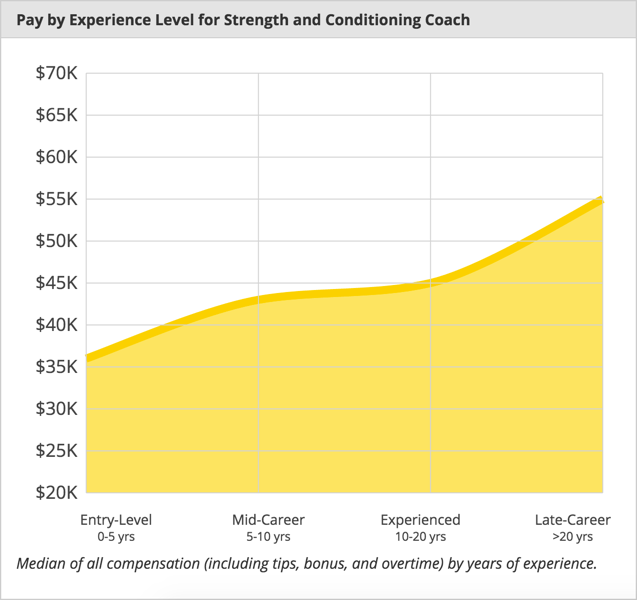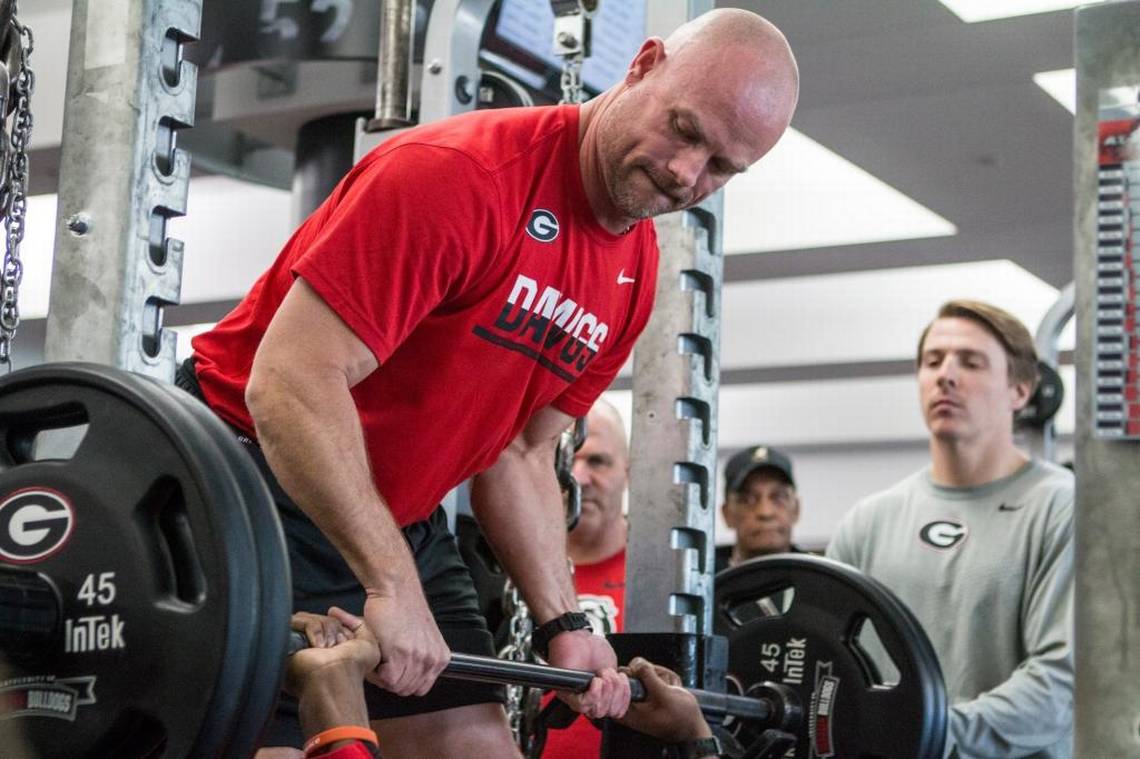Opinion: Big Football S&C Salaries Will Not Lift All Boats
I have to admit that this is a position reversal from where I stood just a few years ago.
Back in 2016, Power 5 football strength coaches were starting to collect big salaries - like, half-a-million dollars per year salaries. It's a lot of money, but just this week we were told that a Big 10 Football Strength Coach will now be receiving $800k per year as his base salary, without bonuses.
When these big payouts were getting announced a few years ago, I predicted that this would eventually serve to benefit all strength coaches and ultimately the rising tide of compensation would lift all boats, led by the big football programs.
Unfortunately, here we are 3 years later and I am not sure this is the case any longer. Although these same football strength coaches are still seeing increasing pay, the same cannot be said for non-Power 5 football strength coaches. At the best, maybe a few more strength coaches have been welcomed to the Big Pay Club, but that club remains small and exclusive.
The Original Prediction
When we said in 2016 that these big salaries would benefit all strength coaches, our first assumption was that Head Coaches were publicly declaring strength coaches as unequivocally important (and they are). And since Power 5 Head Football Coaches have access to funds that would allow them to peg the true monetary value of a strength coach, they would be able to set the standard for the rest of the sports world.
I think that argument is now flawed.
Power 5 Strength Coaches that make more than a half million per year are doing so because their football programs are winning in a high-stakes game. The revenues generated from being a historically great program that constantly competes in the BCS Top 10 (Ie: Alabama, Clemson, Oklahoma) are primarily the reason a strength coach is getting paid $700k per year vs. $200k per year.
And yes, high-stakes winning should result in high pay. I am not here to tell you that the winning poker players should not win the $10mil. pot. But I am also here to say that the poker player who places fifth at the same tournament and comes home with nothing is not $10 mil. less of a player than the first place winner.
In other words, the real value of a strength coach is not determined by what the richest and most successful football program is willing to pay. It's probably better calculated by taking the average of what strength coaches are able to receive from programs that are not financially burdened to pay the strength coach. Even that is probably not a perfect valuation.
The "Trickle Down Effect" Likely Does Not Exist
The other component of the "pay raise" prediction was that bigger salaries to top strength coaches would "trickle down" to their assistants and then to all strength coaches in other sports. After all, when football programs nationwide invest in nutrition, concussion prevention, new turf or brand new training facilities, we usually see other sports do the same thing.
However, I am not sure we have seen other sports paying their strength coaches more money after a half-decade of sky-high football S&C pay raises.
In a series of surveys done by Mike Caro, average Division 1 S&C salaries grew by approximately $1k per year till about 2013-14 when they started jumping $3k-$4k per year, on average. This marks the timeline when Power 5 football S&C starting collecting $200k+ salaries. Whether football salaries are impacting the average entirely, I am not sure, but we can conclude that there is some impact.
However, the opposite happened in for D2 and D3 strength coaches salaries, which have complete stagnated and stopped growing - on average - starting in 2014 and 2015. Prior to those years, salaries for those coaches were rising steadily $500-$1k per year.
"Worth Every Penny"
I am a little nervous to write this because I don't want to upset anyone, but I don't necessarily think that $800k per year to train one team makes sense to me.
There are many people who know or were mentored by the highest paid strength coaches in Power 5 College Football, and they will often say "worth every penny" or "earned every bit of it."
These coaches are the best of the best, have spent decades in the industry (for the most part) and turned in many teams with a lot of success on the field. However, I just don't think that today's salaries are a correct indicator of compensation. These big payouts are a function of brand-name programs, television contracts and historically & contemporarily successful football programs.
If you're a strength coach making $80k per year, do you think you are 10x worse of a strength coach than the highest paid coach? Maybe you are, but if you took that person's job for one year I don't think you will make the team 10x worse, or weaker, or disorganized, or undisciplined, or injury prone (maybe a little of all that though 😜).
Conclusion
To be absolutely clear, I am not sure what the correct compensation is for strength coaches, but I have two firm beliefs at this point in time:
1. The top earners in Power 5 Football are paid much more than they probably should be, because their programs earn the most money due to brand-name, TV contracts, massive fan-bases/royalties, big donors and investments (yes, these programs have so much money that they invest their extra cash to make even more money).*
2. The majority of strength coaches are still underpaid and are not seeing pay raises that are remotely proportional to the Power 5 football strength coaches.
The NSCA's latest salary survey put the average salary for strength and conditioning coaches at around $49k per year. Another chart shows that as coaches rack up over 20 years experience, they can expect to earn up to $55k per year.

Take that in for a second... if you're getting the strength and conditioning coach average salary and then manage to stick to your career for more than 20 years, you will get a mere $5k raise.
All that to say: I am not here to advocate for a massive change when it comes to Power 5 football coach salaries; in fact, I am happy for them. Life is too short to be bitter about others' successes. However, I no longer believe this dynamic will impact the 99% of other strength coaches, and maybe this realization will help move the conversation forward about the compensation problem in the industry.
*Example:
- Alabama 2018 Revenue = $177
- $29.3 million in donations (!!!)
- Media rights revenue = $46.1 million
- Royalties = $13 million
- Investment income = $6.9 million
References:
Williams, Markus (2016). Modern expectations of the qualified strength and conditioning coach. GIH
Subscribe to our blog
Subscribe to receive the latest blog posts to your inbox every week.
Related posts

Let's Talk About Power 5 Strength Coach Salaries
.jpg)
What is the Monetary Value of a Strength Coach

